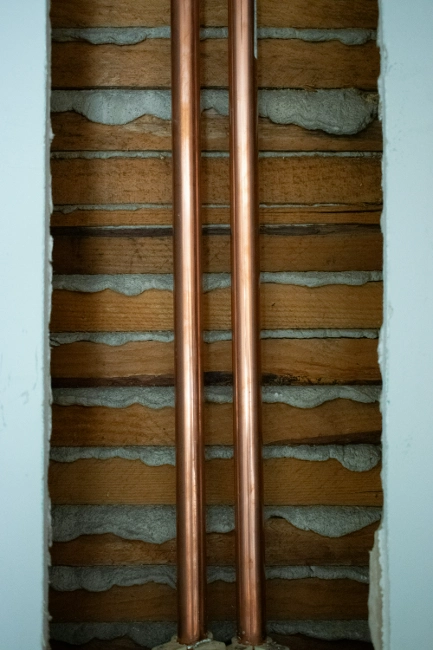7 Common Risks in Vacant Properties and How to Avoid Them

Hello This is Justin with PilottePropertysolutions.com, thank you for joining me once again. Vacant properties, whether residential or commercial, are often overlooked in the realm of property management. However, they are not immune to risks. In fact, these unoccupied spaces can be magnets for a variety of problems. We'll explore the seven most common risks that I believe are associated with vacant properties and I will provide practical strategies to mitigate them.
1. Vandalism and Unauthorized Access
Vacant properties are often seen as easy targets for vandalism, graffiti, and break-ins. The absence of regular activity makes these properties particularly vulnerable to such issues, which can lead to significant repair costs and devaluation of the property.
Detailed Prevention Strategies:
Install Robust Locks and Security Doors: Use high-quality, tamper-proof locks and reinforce doors and windows.
Security Lighting: Motion-activated lights can deter trespassers.
Property Guardians: Consider using live-in guardians for large properties, providing a human presence that deters unauthorized access.
Community Engagement: Inform neighbors and local community watch programs about the vacancy so they can report any suspicious activity.
2. Theft of Materials and Fixtures
Thieves often target vacant properties to steal copper pipes, wiring, HVAC units, and other valuable materials. This not only causes immediate financial loss but also can lead to expensive repairs and restoration.
Detailed Prevention Strategies:
Visible Security Signage: Display signs that indicate the property is monitored and secured.
Inventory of Assets: Keep a detailed inventory of all fixtures and materials in the property.
Regular Property Audits: Conduct surprise audits to check for any signs of theft or tampering.
3. Fire Hazards
Vacant properties are at a higher risk of fire due to factors like outdated electrical systems, arson, and accumulation of combustible materials. A fire in a vacant property can have severe repercussions, affecting neighboring buildings and occupants.
Detailed Prevention Strategies:
Fire Risk Assessment: Conduct a thorough fire risk assessment periodically.
Remove Fire Hazards: Regularly clear the property of debris, old newspapers, and other combustible materials.
Arson Prevention: Secure entry points to prevent intruders who might start fires.
4. Water Damage and Mold
Water leaks and moisture build-up in vacant properties can lead to mold growth and structural damage. This not only affects the property’s integrity but can also result in health hazards.
Detailed Prevention Strategies:
Weatherproofing: Ensure the property is adequately weatherproofed against rain, snow, and other elements.
Gutter Maintenance: Keep gutters and drainage systems clean and functional to prevent water accumulation.
Regular HVAC Check-ups: Ensure the heating, ventilation, and air conditioning systems are in good working order to regulate air quality and moisture levels.
5. Pest Infestations
Vacant properties can attract rodents, insects, and other pests. These infestations can cause damage to wiring, insulation, and other structural components, and can be costly to eradicate.
Detailed Prevention Strategies:
Regular Pest Control Treatments: Even if no pests are present, regular preventive treatments can be beneficial.
Secure Food Sources: Ensure any food remnants are removed and garbage is securely stored or disposed of.
Inspect and Seal Cracks: Regularly inspect the property for cracks or holes and seal them to prevent pests from entering.
6. Legal and Insurance Issues
Vacant properties can fall into legal grey areas, especially concerning insurance coverage, liability in case of accidents, and adherence to local property standards.
Detailed Prevention Strategies:
Regular Legal Check-ups: Stay updated on any changes in local laws affecting vacant properties.
Liability Coverage: Ensure your insurance policy includes adequate liability coverage in case of accidents on the property.
Document Compliance: Keep a record of all your efforts to secure and maintain the property, as this can be helpful in legal situations.
7. Depreciation and Market Value Decline
A property that remains vacant for an extended period tends to lose market value. This is due to perceived neglect, increased wear and tear, and a general decline in aesthetic appeal.
Detailed Prevention Strategies:
Regular Cleaning and Landscaping: Keep the property and its surroundings clean and well-maintained.
Staging and Aesthetics: Consider basic staging techniques to make the property appear lived-in and cared for.
Active Marketing: Actively market the property for sale or rent to minimize vacancy periods.
Conclusion
Vacant properties, while often out of sight, should not be out of mind. Understanding and mitigating the risks associated with these properties is crucial in protecting your investment and maintaining the safety and integrity of the property. Regular maintenance, robust security measures, and staying informed about legal requirements are key to effectively managing these risks. By taking proactive steps, property owners can ensure their vacant properties remain secure, valuable, and ready for future occupancy.
FAQs
Q: How often should I inspect my vacant property?
A: It's advisable to inspect your vacant property at least once a month. However, more frequent inspections may be necessary depending on the property's location and vulnerability to risks.
Q: Can installing a security system in a vacant property reduce insurance costs?
A: Yes, many insurance companies offer reduced rates for properties with security systems, as they are less likely to be targeted by thieves or vandals.
Q: Is it necessary to hire a property manager for a vacant property?
A: While not always necessary, a property manager can be invaluable in handling the regular maintenance, security, and legal compliance of a vacant property, especially if you are unable to do so yourself.
10 Best Locks for Rental Properties: Protecting Your Rental (pilottepropertysolutions.com)
Swann 4K Master Security Camera: An Honest Review (pilottepropertysolutions.com)
Wireless Security Cameras for Vacation Home (pilottepropertysolutions.com)
Do Fake Security Cameras Really Work? (pilottepropertysolutions.com)
Securing Vacant Homes: 4 key steps (pilottepropertysolutions.com)







